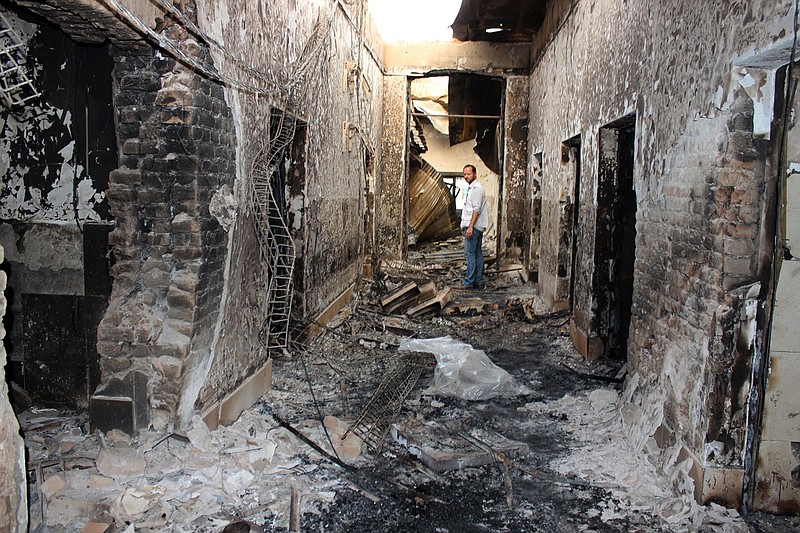WASHINGTON-About 16 U.S. military personnel, including a two-star general, have been disciplined for mistakes that led to the bombing of a civilian hospital in Afghanistan last year that killed 42 people, a senior U.S. official said Thursday.
According to officials, no criminal charges were filed and the service members received administrative punishments in connection with the U.S. airstrike in the northern city of Kunduz. A number of those punished are U.S. special operations forces.
And while none was sent to court-martial, in many cases a nonjudicial punishment, such as a letter of reprimand or suspension, can effectively end a military career. The officials were not authorized to discuss the matter publicly, so spoke on condition of anonymity.
The Pentagon is expected to release the full report on the investigation on Friday, including details about what exactly happened and how the mistakes were made.
Last month, The Associated Press reported that more than a dozen U.S. military personnel had been disciplined in connection with the bombing, and that they were all largely administrative.
The hospital, run by the medical charity Doctors Without Borders in Kunduz, was attacked by a U.S. Air Force special operations AC-130 gunship, one of the most lethal in the U.S. arsenal. Doctors Without Borders has called the attack "relentless and brutal."
Last November, the U.S. military said the crew of the AC-130, which is armed with side-firing cannons and guns, had been dispatched to hit a Taliban command center in a different building, 450 yards away from the hospital. However, hampered by problems with their targeting sensors, the crew relied on a physical description that led them to begin firing at the hospital even though they saw no hostile activity there.
Officials have said the accident was caused by human error, and that many chances to avert the incident were missed.
A separate U.S. report on the incident, obtained last fall by the AP, said the AC-130 aircraft fired 211 shells at the hospital compound over 29 minutes before commanders realized the mistake and ordered a halt. Doctors Without Borders officials contacted coalition military personnel during the attack to say the hospital was "being 'bombed' from the air," and the word finally was relayed to the AC-130 crew, the report said.
The attack came as U.S. military advisers were helping Afghan forces retake Kunduz, which had fallen to the Taliban on Sept. 28. It was the first major city to fall since the Taliban were expelled from Kabul in 2001.
Afghan officials claimed the hospital had been overrun by the Taliban, but no evidence of that has surfaced. The hospital was destroyed and Doctors Without Borders, also known by its French acronym, MSF, ceased operations in Kunduz.

